Understanding the Mental Health Landscape for Older Adults
As the global population ages, mental health care for older adults becomes increasingly vital. Anxiety, depression, and cognitive disorders like dementia affect a significant portion of seniors, making comprehensive mental health services an essential part of supporting aging parents. This article explores the key elements of effective mental health care for older adults, how anxiety and depression are treated, challenges faced, and practical guidance on fostering wellbeing for aging parents.
Comprehensive Mental Health Services for Older Adults: An Interdisciplinary Approach
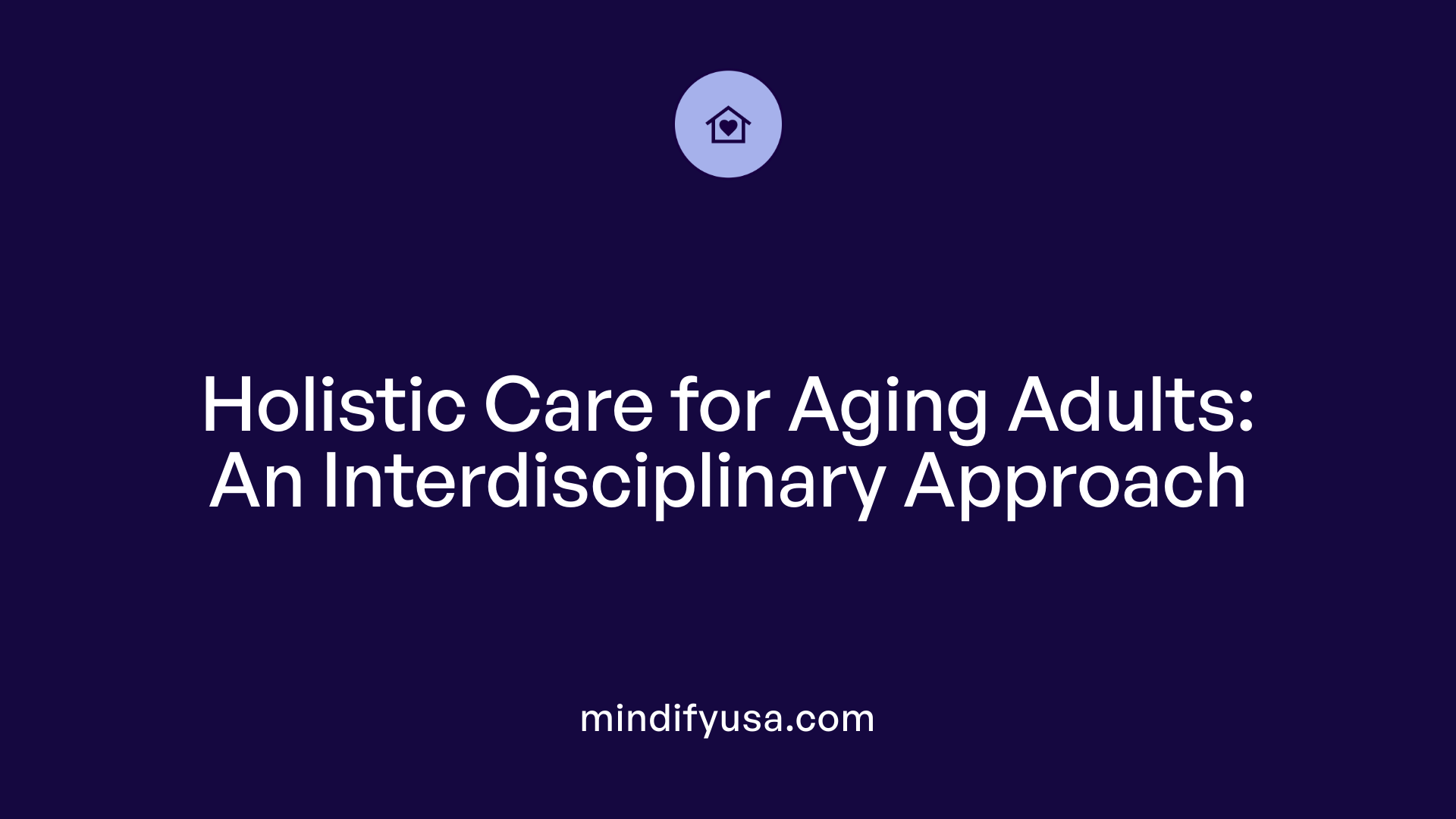
What are the key components of comprehensive mental health services?
Comprehensive mental health services for older adults start with thorough assessment and diagnosis, ensuring all physical, emotional, and social factors are understood. Personalized psychotherapy and counseling tailor treatments to individual needs, while medication management monitors and adjusts pharmacotherapy effectively.
How do multidisciplinary teams contribute?
These services rely on multidisciplinary teams that include geropsychiatrists, nurses, mental health clinicians, and community support workers. This team approach supports a holistic care plan addressing mental, physical, and social health aspects, vital for complex conditions like depression and dementia.
What role does community-based integrated care have?
Community-based integrated care delivers mental health support directly in settings like the patient's home or local community centers. Programs like IMPACT offer short-term cognitive behavioral therapy for depression and anxiety, while peer counseling initiatives help with mild mental health issues, enhancing accessibility and continuity.
How are holistic treatment approaches applied?
Holistic care combines pharmacotherapy, psychotherapy (such as cognitive behavioral therapy), and social support, emphasizing activities like physical exercise, healthy nutrition, and social engagement. Addressing social determinants like isolation and stigma, and promoting resilience and purpose in aging, improve mental well-being and reduce depressive symptoms.
Together, these components and approaches ensure older adults receive comprehensive, coordinated, and compassionate mental health care that supports aging in place and enhances quality of life.
Treatment of Anxiety and Depression in Aging Parents: Evidence-Based Practices and Support
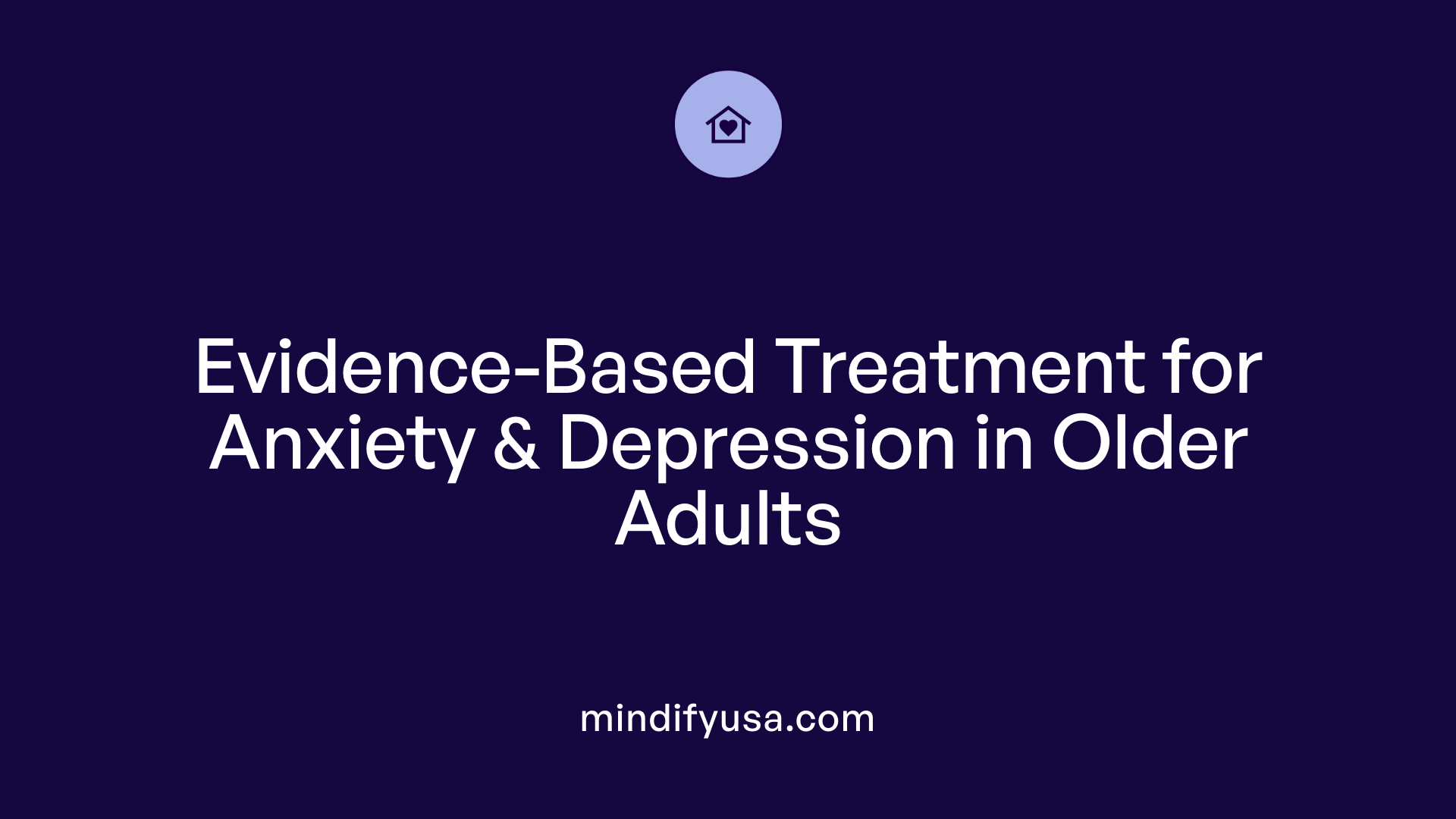
How are anxiety and depression treated within mental health services?
Anxiety and depression among aging parents are addressed through comprehensive, evidence-based treatments that blend psychotherapy, medication, and lifestyle interventions. Cognitive behavioral therapy (CBT) is a frequently used psychotherapy modality known for effectively managing symptoms by helping individuals identify and change dysfunctional thought patterns and behaviors.
Medication management often involves antidepressants tailored to the individual's health profile, ensuring safety and tolerability, especially in older adults with multiple health conditions. Public health agencies such as SAMHSA provide valuable support by funding mental health services, facilitating access to treatments, and offering crisis helplines like the 988 Suicide & Crisis Lifeline.
Lifestyle interventions play an essential role in treatment, promoting physical activity, healthy diet, and sleep hygiene. These factors help improve overall mental well-being and can delay cognitive decline. Additionally, approaches integrating mental health care into primary care settings allow for collaborative care models, improving early detection and management.
Holistic care emphasizes not only symptom reduction but also enhancing resilience, social engagement, and purpose. For seniors, combining psychotherapy and pharmacotherapy yields better outcomes for depression. Continuous monitoring and multidisciplinary support ensure treatments are adapted to changing needs, promoting recovery and quality of life.
In summary, treating anxiety and depression in aging parents involves a strategic mix of psychological therapy, medication, lifestyle support, and robust public health infrastructure to ensure comprehensive, compassionate care.
Challenges and Barriers in Supporting Aging Parents’ Mental Health
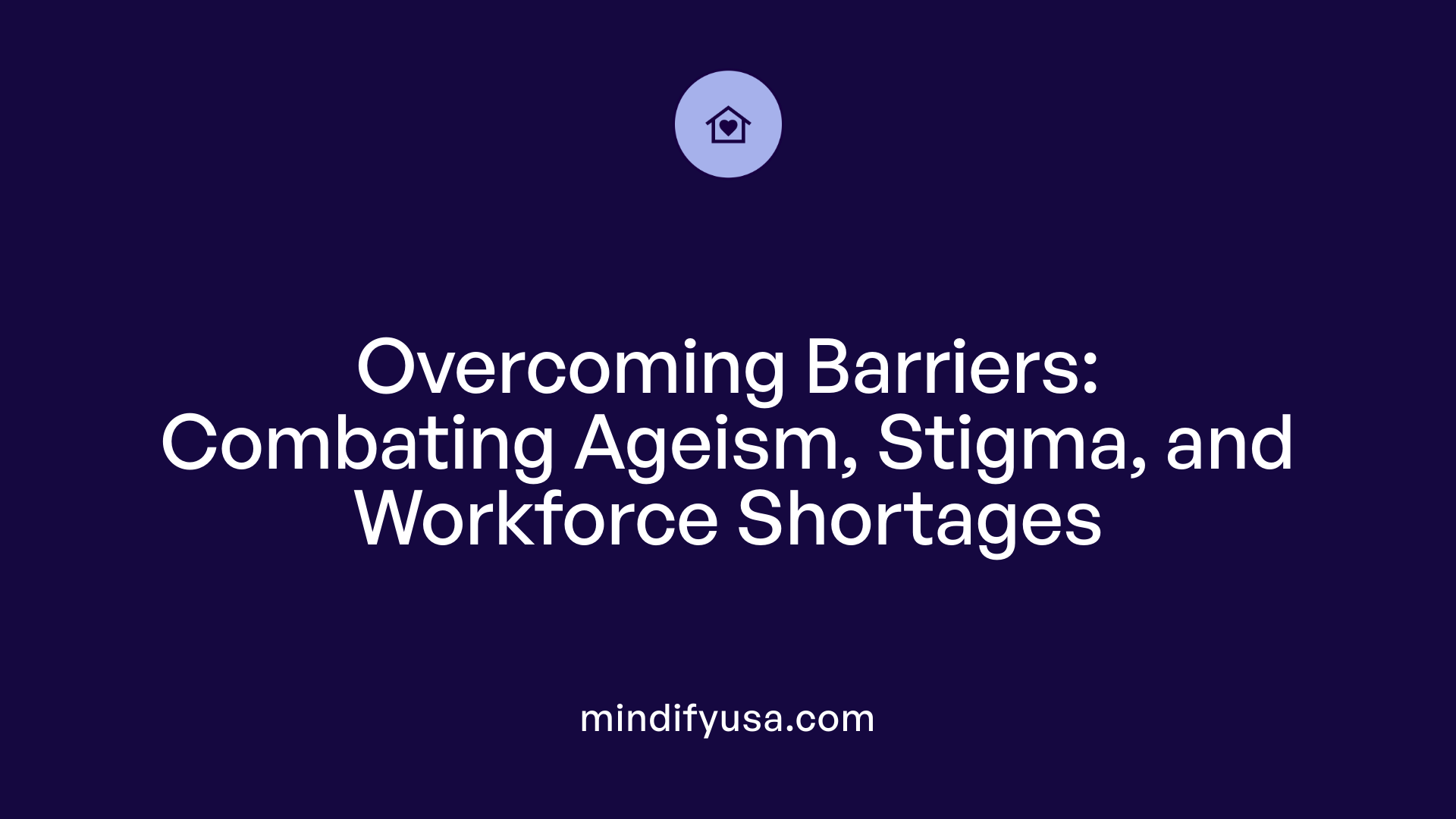
How do stigma and ageism affect mental health care for older adults?
Stigma surrounding mental illness and ageism often prevent older adults from seeking or receiving appropriate mental health care. These societal prejudices can cause feelings of shame or fear, discouraging open conversations about mental health needs.
What impact do workforce shortages have on mental health services for seniors?
A shortage of specialized healthcare professionals, including geropsychiatrists and mental health clinicians, limits access to quality care for older adults. This shortage hampers comprehensive assessment and treatment, particularly for those with complex co-morbid conditions.
How do social isolation and loneliness affect the mental health of aging individuals?
Loneliness and social isolation are significant risk factors for depression and anxiety in seniors. About a quarter of older adults experience social isolation, which exacerbates mental health conditions and hinders recovery.
What are the challenges related to caregiver stress and burnout?
Older adult caregivers often juggle multiple roles, such as managing work and family alongside caregiving duties, leading to feelings of exhaustion and overwhelm. This stress can result in psychological distress, including anxiety and depression, further complicating care dynamics.
How do trauma and abuse contribute to mental health issues in older adults?
Trauma from abuse—often by caregivers—and witnessing deterioration in loved ones can cause depression, anxiety, and post-traumatic stress symptoms. Approximately one in six older adults experiences abuse, requiring sensitive and comprehensive interventions.
Addressing these barriers through anti-discrimination policies, supportive social connections, and expanded mental health workforce training is essential to improve care for aging populations.
Practical Strategies for Families: Supporting Aging Parents’ Mental Health at Home and in the Community
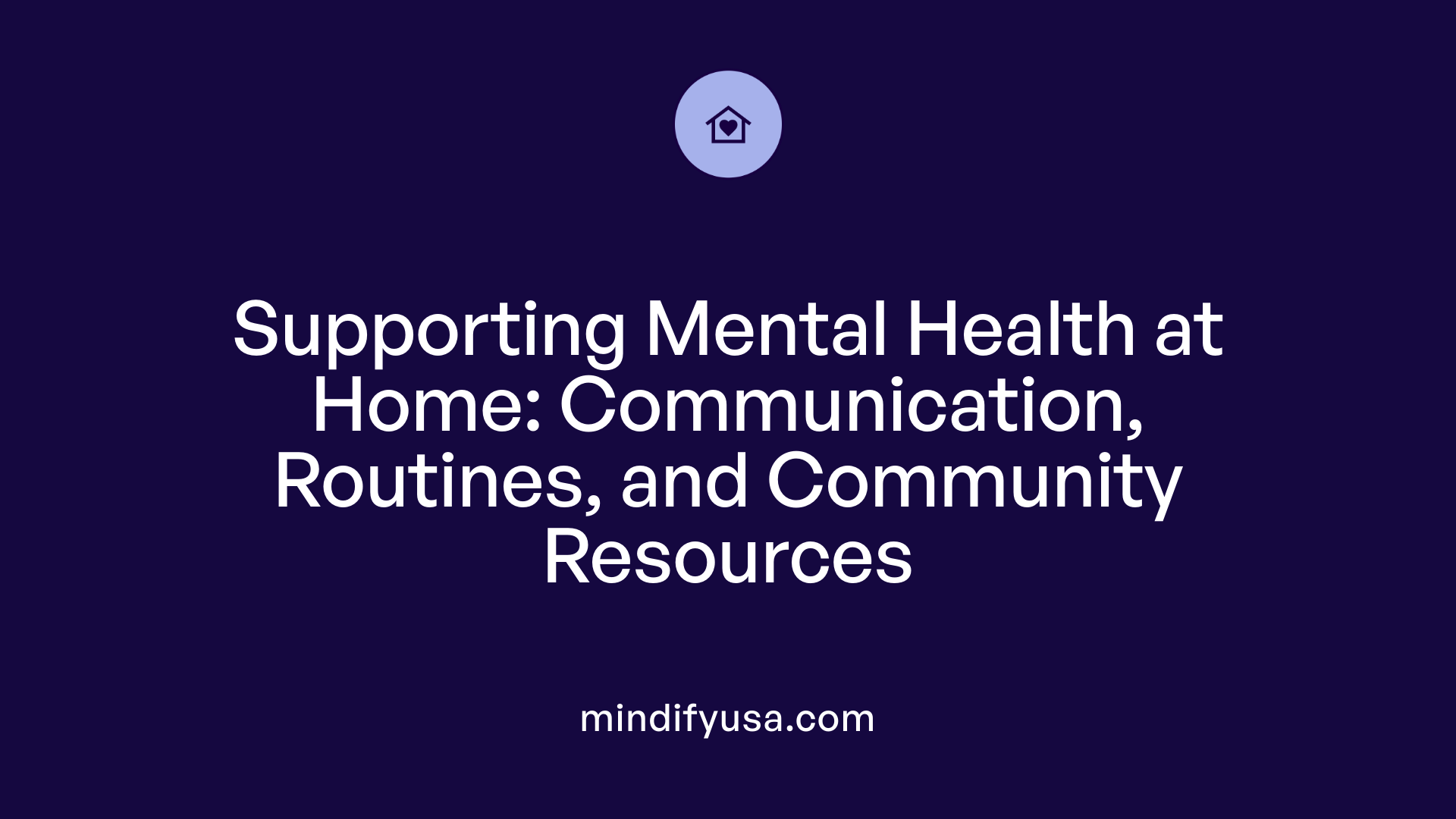
How Can Families Use Empathetic Communication to Support Aging Parents?
Empathetic communication involves open-ended and compassionate conversations that encourage aging parents to express their feelings and concerns. This approach builds trust and fosters a safe environment for discussing mental health, which can reduce stigma and help parents feel heard and understood.
Why Is Validating Emotional Experiences Important?
Validating the emotions of older adults acknowledges their experiences and feelings as real and significant. This practice strengthens emotional connections and can decrease feelings of isolation and loneliness, which are common risk factors for depression and anxiety in seniors.
How Does Encouraging Purpose and Routine Promote Emotional Wellness?
Helping aging parents establish daily routines and find meaningful activities gives structure and a sense of purpose. Engaging in hobbies, volunteer work, or light physical activity can boost mood and cognitive health, supporting overall mental wellness.
What Are Effective Ways to Rebuild Social Connections?
Facilitating participation in community groups, arts, leisure activities, or volunteer opportunities helps restore social ties. Increased social engagement combats isolation, lowers depression risk, and enhances quality of life for older adults.
How Can Families Normalize Mental Health Support?
Families can normalize seeking therapy and other mental health services by discussing them openly and framing them as beneficial tools rather than signs of weakness. This helps seniors process grief, anxiety, and life transitions more healthily.
What Community Resources Are Available to Support Families?
Numerous community programs such as Senior Peer Counseling, the IMPACT program for short-term therapy, and local mental health services offer tailored support for seniors. National helplines like the 988 Suicide & Crisis Lifeline and the Friendship Line provide emotional support and crisis intervention.
By combining empathetic communication with validation, purposeful routines, social reconnection, normalized mental health support, and use of community resources, families can effectively support their aging parents’ mental health at home and in the community.
Supporting Caregivers: Mental Health and Wellbeing of Those Who Support Aging Parents
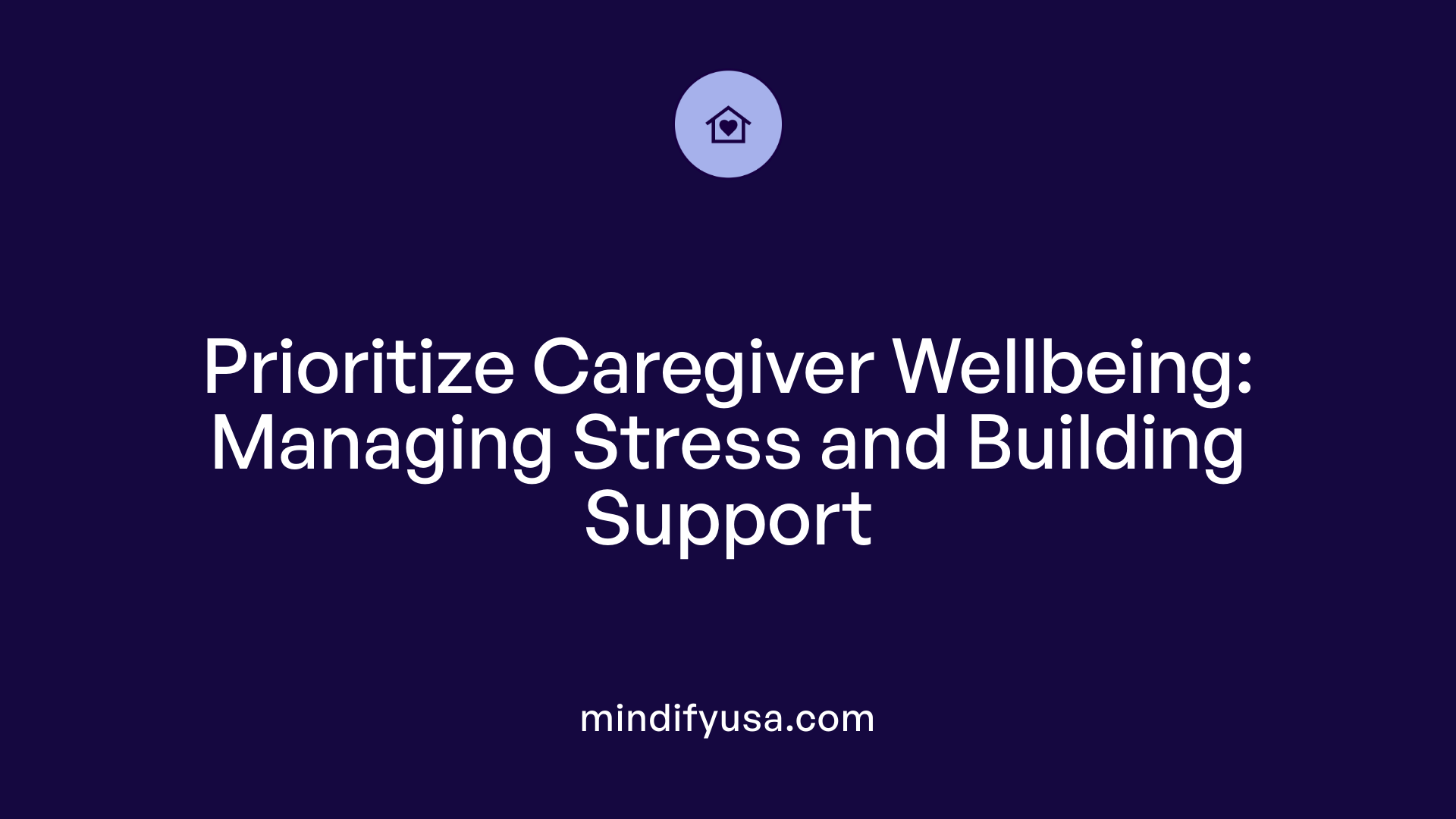
Caregiver Stress and Psychological Distress
Caring for aging parents often leads to significant psychological distress among caregivers. Common feelings include exhaustion, overwhelm, anxiety, and depression. Many older caregivers juggle multiple roles, balancing caregiving with work and family responsibilities, often leading to emotional overload described as "living life for two people." This unease can be characterized as adjustment disorders rather than chronic mental illnesses, yet the emotional impact is profound.
Effective Psychotherapeutic Approaches for Caregivers
To help caregivers manage these challenges, psychotherapeutic methods such as cognitive behavioral therapy (CBT), dialectical behavior therapy (DBT), and psychoeducation have proven effective. These therapies address negative emotions, stress, and anger by providing tools for emotional regulation and coping strategies tailored to caregivers' needs.
Stress Management Techniques
Specific techniques within DBT, such as distress tolerance skills and the STOP skill, help caregivers cope with immediate stressors. Self-soothing exercises that engage the five senses support emotional balance during times of distress, enabling caregivers to maintain wellbeing amidst their demanding roles.
Importance of Psychoeducation and Support Networks
Psychoeducation about mental health, aging, and self-care empowers caregivers with knowledge and insight, reducing feelings of guilt and isolation. Encouraging caregivers to build support networks, including peer groups and community programs, enhances resilience and provides a forum to share resources and emotional support.
Respite Care and Community-Based Programs
Respite care services offer temporary relief to caregivers, which is crucial for preventing burnout. Community programs, including those funded by agencies like SAMHSA and local mental health services, provide comprehensive support through counseling, peer support, and educational resources, enabling caregivers to sustain their crucial role in elder care while protecting their mental health.
Building a Compassionate Future for Aging Parents’ Mental Health
Supporting the mental health of aging parents requires a well-rounded approach that combines comprehensive clinical care with empathetic family involvement and community support. Understanding the complex needs of older adults and addressing barriers such as stigma and social isolation can empower families and caregivers to foster emotional wellness. By embracing evidence-based treatment, promoting open communication, and ensuring caregivers receive needed resources and respite, we can enhance quality of life and dignity for older generations, ensuring they feel valued, supported, and mentally healthy throughout their later years.
References
- Home | SAMHSA - Substance Abuse and Mental Health ...
- Mental health care for older adults: recent advances and ...
- Mental health of older adults
- Mental Health Across Generations: How to Support Aging ...
- Older Adult Mental Health Services
- Mental Health Resources for Older Adults - DHCS
- The mental health needs of older caregivers





































































































